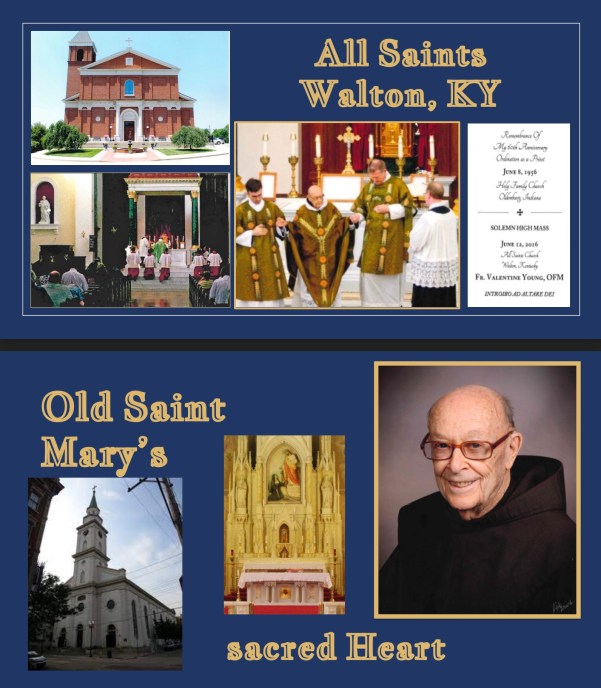 HERE’S A LEGEND about SAINT THOMAS AQUINAS. (I can’t say for certain whether it happened in real life, because I wasn’t there.) In the monastery, a confrère of Saint Thomas told him he was mispronouncing a certain Latin word. As a matter of fact, Saint Thomas was pronouncing it correctly. According to the story, when it was time for Saint Thomas to read in front of everyone, he then intentionally mispronounced the word. Later on, a different confrère approached him, asking: “Why did you accent that word incorrectly? You know the proper way to pronounce it.” Saint Thomas Aquinas is said to have replied: “How to pronounce a word is a very unimportant thing—but humility is quite an important thing.”
HERE’S A LEGEND about SAINT THOMAS AQUINAS. (I can’t say for certain whether it happened in real life, because I wasn’t there.) In the monastery, a confrère of Saint Thomas told him he was mispronouncing a certain Latin word. As a matter of fact, Saint Thomas was pronouncing it correctly. According to the story, when it was time for Saint Thomas to read in front of everyone, he then intentionally mispronounced the word. Later on, a different confrère approached him, asking: “Why did you accent that word incorrectly? You know the proper way to pronounce it.” Saint Thomas Aquinas is said to have replied: “How to pronounce a word is a very unimportant thing—but humility is quite an important thing.”
Jeff Bragging • For many years, I served as an Altar Boy. Those are still the happiest memories of my life, especially when it was Low Mass and my father was the only one in the congregation. While still in high school, I was allowed to be Master of Ceremonies for FATHER JOSEPH BISIG (who was Superior General of the Priestly Fraternity of Saint Peter). I’m sure the Father Bisig has no memory of that; but for me, it was an unforgettable experience. In the sacristy, when the clock struck noon, I asked if he wanted to say the ANGELUS. Father Bisig replied: “I’m afraid I only know it in Latin, not in English.” In one of my proudest moments, I immediately replied: “I know it in Latin, too!” Later on, when Father Arnaud Devillers became FSSP Superior General, I also got to be Master of Ceremonies for him.
Setting The Stage • Anyhow, the point is: I loved serving at the Altar. I read a book that in the Renaissance times, those who served at the Altar would lie prostrate during the Consecration. (I always wanted to do that, but the rubrics no longer allowed it.) While the Creed was being sung, FATHER VALENTINE YOUNG would come to the foot of the Altar and kneel while the “Et Incarnátus” was being sung by the choir.
This Was Wrong • At some point, I started to bow—in addition to kneeling—at the “Et Incarnátus.” This was something I decided to do out of personal devotion, but the rubrics do not allow for it. I did this for several months. Then something happened I will never forget. Even though it is not mandated by the rubrics, and even though he was already an old man by that time, Father Valentine began to bow with me (while kneeling) while the “Et Incarnátus” was being sung by the choir!
Who Cares? • Please understand: most priests would not do that. I suspect most priests would have said: “Jeff, stop adding extra things that are not in the rubrics. Your job isn’t to add extra things. Nor are you to put your own ‘personal spin’ on being an Altar Boy. Your job is to do exactly what the rubrics tell you—and nothing else.” If a priest had told me that, I think he would have been correct. And yet, that’s not what Father Valentine did. It reminds me of the story about Saint Thomas Aquinas I told earlier.
Father Valentine Young, OFM • Every night, my family prays for the soul of Father Valentine Young, OFM. But this is not easy to do, because I truly believe he is in Heaven. Do you have difficulty praying for someone you believe to be in Heaven? As he lay dying, the spiritual Director of Saint John Mary Vianney asked him to destroy all his instruments of penance, such as the whip he used on his own back. He was afraid that if people thought he was in Heaven, they would not pray for him after he died.
My Belief • I believe Father Valentine is in Heaven because each day he woke up, prayed the VENI SANCTE SPIRITUS, and asked God: “What do you want me to do today?” And no matter what it was, I believe he tried to do what God wanted from him that day.
Can I See You? • I pray that I will be able to know the will of God and to do it. Never check your phone in the morning until you have said your morning prayers. When you wake up, never take your phone off “airplane mode” until you have offered your day to God. It’s very important that every Christian pray when they wake up in the morning. Even if it’s a very brief daily offering, never omit this! How many church musicians pray each day? How many church musicians pray at the very beginning of their day? I would hope 100% of church musicians do this. I almost wish I could see into the houses of every church music director in the world (each morning) and see whether we are all saying our morning prayers. It would give me strength to know that other choirmasters pray each day, and offer each day to God without fail.
![]()
Photos of Father Valentine, Courtesy of Miss Hannah H.
![]()








